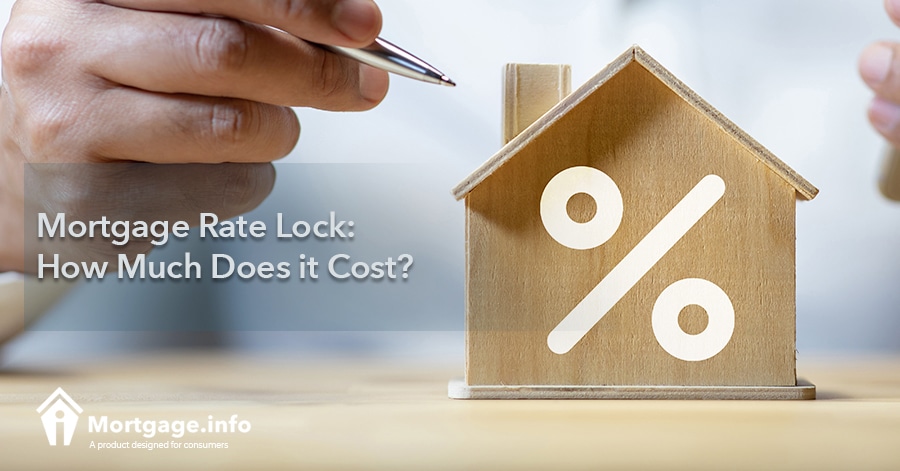
Before you can close on a mortgage, you have to lock in the interest rate. No matter how hesitant you are, at some point you have to be willing to lock it or you can’t close on the loan. Just what is that rate lock going to cost you?
Looking for Current Mortgage Interest Rates? Click Here.
Keep reading to find out.
The Fee to Lock a Rate
First, you should know that you probably won’t have to pay anything to lock in your interest rate. The ‘fee’ is built into the rate itself.
This is only the case if your rate lock doesn’t expire though. This means you shouldn’t lock your interest rate too early, or you risk paying a fee. Typically, lenders don’t let borrowers lock in an interest rate until they have an executed purchase contract. If you lock your rate in before then, your chances of it expiring before you close are fairly high.
Dealing With an Expired Rate
Now, the real problem is when the rate lock expires. At this point, you’ll likely pay a fee. The fee that each lender charges depend on the interest rates the time. There isn’t a flat fee that all lenders must charge.
On average, you can expect to pay around 0.375% of your loan amount to extend the rate lock 15 days. If you need to extend it again, you’ll pay that fee yet again. This may vary by lender, though. Some lenders offer a free extension with the first missed rate lock date and then charge a fee if you have to extend again.
Typically, whether a lender will extend the rate depends on the rates at the time. If the rate/fee combination is no longer available, the lender won’t allow you to extend it. Instead, you’ll have to take the current market rate.
Click to See the Latest Mortgage Rates.
When Should You Lock Your Interest Rate?
The bigger question here is probably when should you lock your rate? You probably want to do what you can to avoid the fees to extend the rate. But how do you know when to lock it?
Start with the proposed closing date in your purchase contract. Count backward from that date and then add a cushion. If you are 60-days out, you may want to wait as locks much longer than 30 days can get costly. You won’t be able to secure nearly as low of a rate if you take a rate lock for 60 days.
If you can wait until you are closer to the 30-day mark, you’ll give yourself a better chance at securing low-interest rates. Just make sure you are certain that your loan will close within that time. If it won’t, don’t lock it – you are better off waiting.
Talk with your lender about when you should lock your interest rate. They will usually be pretty honest with you about what they think you should do. While no one can predict what rates will do in the future, lenders have enough experience behind them to be able to tell what rates might do based on the market’s history.
